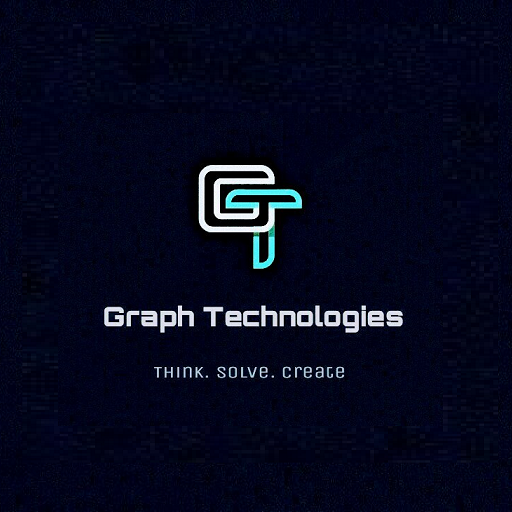Macharia Kihahu is cofounder and Chief Technical Officer (CFO) at Graph Technologies. The company, founded in 2013 in Nairobi Kenya, has around 50 employees. Here’s what Mr. Macharia had to say about the company.
Tell us a little bit about your previous work:
I spent the past 4 years helping entrepreneurs with their ideas to go live. During this period, I had luck building startup projects from the ground up that we can now observe as firm market players in such areas as e-commerce, healthcare, business services, transportation and many others. I started as Project Manager and have been doing this for more than 4 years, it helped me to get a clear idea of the most important things that lead an idea to a successful tech startup. There were many lessons learned, many ups and downs during the journey that made us to create a nearly perfect formula of building successful tech startups. Being a CFO, one of my core responsibilities is to introduce that formula to all of our projects, making our team to deliver incredible service, stay efficient and be fully committed to a project goals.
What does your mobile app development company do?
There are thousands of agencies that do mobile app development, here at Graph Technologies we went further. Since the start, we decided to take proactive approach to the projects and not to deliver just a code, but take care of the entire business solutions. This approach helped us to build a culture within the company, that is focused on full dedication, commitment and collaboration. Among the technical skills, these are the most important things for the long-term success of project we build. And these are the features that make us to be different from other agencies.
What clients have you worked for?
We love working with ambitious people in agile environments, we also love to find efficient solutions for all kind of problems and, therefore, most of our clients are startups from Africa. However, since we normally establish long-term relationships and help clients to scale and expand, there are a few market leaders we have in our pool of clients.
Our main areas of focus are Elearning,Transport and FinTech solutions where we come up with prebuilt platforms and APIs, bringing unique propositions and benefits.
If you had to choose one category, what kind of app do you think is your mobile app development company’s specialty?
What we specifically like is to work with unconventional user experiences and interfaces. Most of these experiences come to us with IoT solutions where we either need to build an app for irrigation controllers, or for medical rehabilitation equipment or for smart doorbells. This kind of apps normally have hundreds of user stories that we love to identify, implement and test to deliver incredible experience to the app’s users.
What is the average budget of the mobile apps you develop?
It all starts with MVP versions that may vary from a couple of thousands to a few hundred thousand depending on a project. But when it comes to the total costs we strongly believe that successful projects never end, there are always ideas to make them better, there are always requests coming from the clients and there is everlasting backlog of tasks to do. The most important thing is to align the development efforts with the budgeting, specifically the revenue generation. This is the area where our business advisors and marketers normally help to perform a proper planning and to execute the campaigns.
Do you develop all mobile apps in-house or do you outsource some parts of the process?
We love the remote work and one day it will become a common practice but at this time we don’t engage any 3rd party developers to help with our projects. There are numerous business processes our team follows; there are frequent training and certifications for developers handled in-house; and there is collaboration as the most critical aspect of any projects. All of these don’t make it possible for us to outsource the development or to introduce the remote work for our employees.
Do you prefer to build mobile apps with native, hybrid or web languages?
Unlike many developers, our personal preference is the last thing that we consider when deciding regarding the technology. The cross-platform technologies and framework evolve rapidly and now we build most of the projects using them. Native technologies are mainly used for unconventional projects where hybrid technology doesn’t allow to deliver a good user experience and reliability.
Let’s focus on iOS and Android mobile app development. Which are the Pros and Cons of each platform?
There are several Pros each of the platforms comes with but there are also Cons that are not fixed for years, leading to extra work and expenses. One of them is lack of standardization that comes with Android, there are still so many incompatible versions and screen resolutions that negatively affect the development of native applications. iOS, however, got many restrictions on the platform level and the publishing process sometimes not transparent and predictable. But none of these issues can be considered as critical and most of the developers can effectively deal with all of the restrictions and limitations.
Which one will evolve more within the next 5 years?
The technology landscape is evolving pretty quickly and we can expect a lot of cool features and devices in the nearest future. However, the market share most likely will stay the same unless there is a 3rd platform comes into play with a revolutionary approach to devices and interfaces powered by AI and Voice, so-called “interfaceless” design. But there should be another Steve Jobs and even than it will take years for the technology to get adopted. When it comes to competition between iOS and Android, one is limited with the range of devices, another is limited with fragmentation. If one of them happens to solve these problems the market share may change significantly over the next few years.
Which device is the best in the market right now?
When it comes to devices things are way more complex nowadays, I prefer to consider eco-systems where Apple is the best choice for me because of the smooth and unified experience across all the devices they sell. Their products behave predictably and intuitively, making users to focus on their goals rather than on figuring out how to do their tasks or make their devices to connect each other.
And which device do you feel more comfortable developing an app for?
There is no real preference that we have, both platforms come with a pretty extensive toolset for developers. Additionally, if you consider building a project for a wide audience, there is no way to stick to a single platform.


